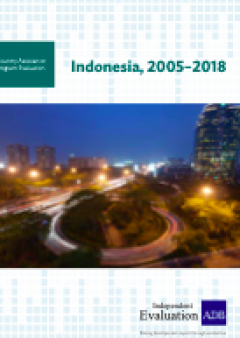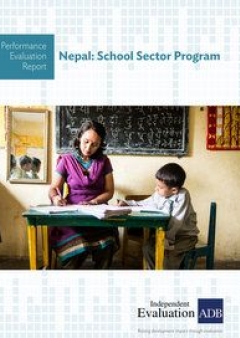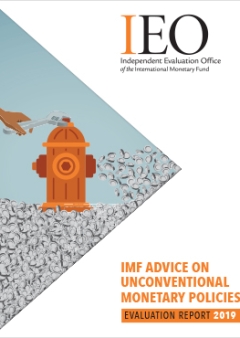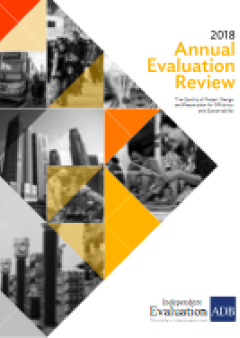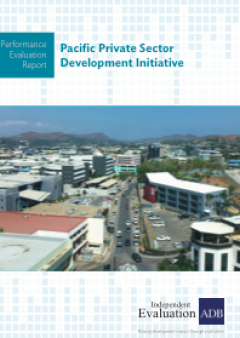

Documents
Member's Documents
ADB’s assistance to Indonesia over the evaluation period has helped it achieve its key development objectives, including reducing its population below the absolute poverty line to less than 10%, but significant challenges remain in fostering inclusive and environmentally sustainable growth.…
Member's Documents
This evaluation assesses the School Sector Program (SSP) successful, although it did not fully meet the ambitious targets it had set. The program led to some important achievements in the education sector, the establishment of a national student assessment system, the development of school…
Member's Documents
In the aftermath of the Global Financial Crisis, central banks in the largest advanced countries innovated aggressively to restart growth and combat persistent deflationary risks, while policymakers elsewhere were faced by spillovers from extremely easy global liquidity conditions. This report…
Member's Documents
This evaluation assesses the IMF’s engagement with countries in fragile and conflict-affected situations (FCS). Helping these countries has been deemed an international priority because of their own great needs and the dangerous implications of persistent fragility for regional and global…
Member's Documents
The 2018 Annual Evaluation Review reviews ADB’s progress in operationalizing its strategic agendas and drivers of change by summarizing the results of ADB’s interventions in these areas based on recent corporate and thematic evaluations.
Member's Documents
This evaluation of the Pacific Private Sector Development Initiative (PSDI), 2007–2017, examines whether the initiative has been successful in improving the enabling business environment of the 14 ADB Pacific developing member countries (DMCs).
Document Type:
Filter By Member:
- (-) Independent Evaluation Department, Asian Development Bank (36)
- (-) Independent Evaluation Office of the International Monetary Fund (17)
- Office of Evaluation and Oversight, Inter-American Development Bank (117)
- Independent Evaluation Department, European Bank for Reconstruction and Development (97)
- Independent Development Evaluation, African Development Bank (69)
- Independent Office of Evaluation, International Fund for Agricultural Development (46)
- Evaluation (EV), European Investment Bank (40)
- Independent Evaluation Group (IEG), World Bank Group (37)
- Independent Evaluation Department, Islamic Development Bank (25)
- Independent Evaluation Office, Global Environment Facility (9)
- United Nations Evaluation Group (UNEG) (7)
- OECD-DAC Evaluation Network (1)
